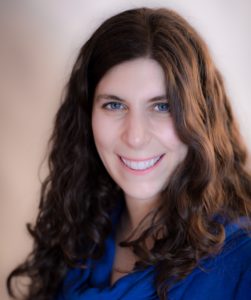A d’var Torah for Parshat Eikev
Just over three years ago, I sat at lunch with my husband and my food turned to ash in my mouth. I listened in horror as a man announced his candidacy for our country’s highest office, and in almost the same breath, spewed a venomous slew of accusations against Mexican immigrants. “They’re bringing drugs. They’re bringing crime. They’re rapists,” he said. “How can he say this?” I wondered. (Those were the days!) “What could this slander possibly accomplish?”
What I learn this week from Torah is that denigration is integral to dispossession. In parashat Eikev, the Israelites are poised to enter the Promised Land, but it’s already occupied. God has promised and God will deliver, so the Israelites prepare for slaughter and expulsion. But! Moshe warns: Don’t imagine that you are getting this land because of your own righteousness (D’varim 9:4). Know, rather, that the absolute undyed wickedness of the current inhabitants lets you conquer the place they’ve dwelt for generations. The gentiles become defined by Moshe’s words, rish’at hagoyim,“wickedness of the nations,” repeated until they no longer seem human.
Sign up to receive Torah from T’ruah in your inbox each week!
As a new student at Hebrew College, navigating the pulsing murmur of a morning davening, I remember my dismay when I first read in the weekday Shacharit liturgy, tucked in between Psalm 150 and Shirat HaYam, this sentence: “And You cut that deal with Avraham, to give him the land of the Canaanites and the Hittites and the Emorites and the Perezzites and the Chivites and the Y’vusites and the Girgashites, to give to his descendants.” So many peoples uprooted. So few ethically satisfactory reasons given. The more I read the line, the more upset I became.
To me, Torah’s repeated claim of these seven nations’ evil, in our parshah, sounds hollow. They are idolaters, yes, but what other sins have these people committed? Isn’t t’shuvah, even conversion, possible?
It seems not to matter.
The Ramban (13th century Spanish commentator) acknowledges that no amount of Israelite righteousness  could have justified God exiling the original nations from their land: their wickedness invited destruction but not expulsion (D’varim 9:4). Rabbeinu Bahya, writing a generation later in the same country, is braver. He says, God promised Abraham this place – and so regardless of the previous occupants’ righteousness, they needed to be relocated or removed (9:5). The Israelites are far from blameless. Moshe spends the rest of D’varim chapter 9 rehearsing their sins against God in the wilderness. But their sins are outweighed by their need for a homeland, God’s promise to a righteous ancestor, and most urgently, the evil that Torah attributes to the seven nations, and so those nations bleed and die.
could have justified God exiling the original nations from their land: their wickedness invited destruction but not expulsion (D’varim 9:4). Rabbeinu Bahya, writing a generation later in the same country, is braver. He says, God promised Abraham this place – and so regardless of the previous occupants’ righteousness, they needed to be relocated or removed (9:5). The Israelites are far from blameless. Moshe spends the rest of D’varim chapter 9 rehearsing their sins against God in the wilderness. But their sins are outweighed by their need for a homeland, God’s promise to a righteous ancestor, and most urgently, the evil that Torah attributes to the seven nations, and so those nations bleed and die.
People require justification to drive out their neighbors. Once you have decided that you need to remove a people from their home, it becomes not merely expedient but necessary to attack them personally. Not on account of our own American-born righteousness, O God, are we deporting our undocumented friends and congregants and employees/ers and students. We know our Golden Calves too well. So in order to justify these people’s removal, they must be wicked. Irredeemable. A different species. The words White House officials use to describe immigrants deny their humanity: “Animals.” “Illegals.” “Aliens.” One doesn’t cage human children.
The immigrants and deportees I have met are wholly human. A young man from Guatemala in a Boston prison can hardly bear to speak the profane words describing his beloved mother and sisters, used by his abusive stepfather. A deported mother at a shelter in Tijuana distracts her distraught young daughters on a computer call by baking a cake. A young Latinx woman in Mijente’s #FreeOurFuture march, with a rose in her hair and a megaphone at her mouth, raises up our voices in triumphant chants. My prayer is that humanity becomes as impossible to negate remotely as it is in person.
In our morning liturgy, we acknowledge our own sins together. They become inspiration for humility instead of hate: “Master of all worlds, not because of our righteousness do we lay our pleas before You, but because of Your great compassion.” (Daniel ch. 9) All immigrants are humans, no less than citizens. We’re told to love the ger as ourselves, from Sh’mot onwards, because we and the ger are the same human stuff. Eikev warns us how easy and how fatal it is to condemn and become estranged from people who we feel are in our way. We know this as a part of our Jewish history. Let’s help America to not repeat it.
Cantor Vera Broekhuysen serves Temple Emanu-El of Haverhill, MA as its spiritual leader; she lives with her husband and their two young sons in North Andover, MA.

